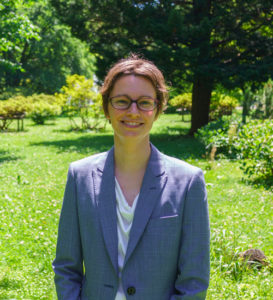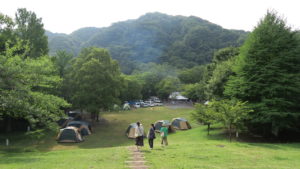Spotlight on Research: I eat, therefore I am
Research Highlight | November 29, 2017
Food is a central part of our everyday lives, and the sociality of food is something which defines cultures worldwide. Now, imagine you are unable to safely consume a number of different foodstuffs, that you have food allergies. How would this affect your lifestyle, mentality, and relationships?
A food allergy (not to be confused with a food intolerance) is an overresponse of the immune system when the body mistakes an ingested foodstuff as harmful, causing a physiological reaction, such as swelling of the lips and airways. This can lead to anaphylaxis, which in turn can lead to anaphylactic shock and even death. The underlying cause of food allergies is unknown, although recent research suggests the development of allergies may be related to limited microbial diversity in the gut.
Food allergies are on the rise across the industrialized world, yet there doesn’t seem to be a widespread awareness of what they are and how they affect people’s lives. Dr. Emma Cook of the Graduate School of Media and Communication is a social anthropologist currently studying how living with food allergies in Japan and the U.K. affects one’s experiences and wellbeing, loved ones, and friends. She looks at adults and teenagers who have had food allergies since they were children, those who developed them later on, and the parents of children with food allergies.
Parents who have children with food allergies have a great responsibility to not only keep their child safe, but also factor in their child’s social life, as they don’t want them to feel singled out. Take school lunches in Japan (給食) for example. They take place in the classroom and are considered an integral part of the day to develop good nutrition, eating habits, and social behaviors. If living in a prefecture that doesn’t provide special lunches for kids with food allergies, parents need to check the lunch menu in advance to determine which days are unsafe for their child so they can send them to school with similar looking food that can be placed onto their lunch tray.
Dr. Cook works closely with a non-profit organization in Tokyo called ATOPICCO Network for Children of the Earth to conduct participant observations, ethnographic fieldwork and interviews. She also attends ATOPICCO’s annual summer camp for kids with food allergies. This camp is advertised as a place where children are able to eat the same food as everyone else, and workshops and information seminars are held alongside for the parents. Dr. Cook can recall the impact the first summer camp she attended had on her:
“All of the parents introduced each other starting with their child’s allergy. Some people would cry as a sort of relief that they’re in a room with people who don’t judge them and share the same experience. I didn’t realize how emotionally tiring it is until I saw this… It’s not been long since the Great East Japan Earthquake and the Kumamoto earthquake and so there’s also a huge amount of stress related to how to feed their kids during a natural disaster.”
- ATOPICCO summer camp grounds
- One of the dishes offered at the camp
Since allergies are understood by the general public in different ways from country to country, how people manage and view their allergies, and as such how people experience food allergies, varies. According to Dr. Cook, in the U.K. many allergy sufferers view it more as a condition, whereas in Japan it’s understood more in terms of an illness. Some children with allergies also have the option to undergo oral immunotherapy treatment (OIT) and, in some places, medical trials to try and increase their tolerance for the allergen to reduce the risk of a severe anaphylactic reaction. All of these factors affect the daily lives, mindset, and quality of life of everyone involved.
Food allergies also tend to create a gender divide. In both Japan and the U.K., even in households that had an equal gender distribution of household labor, once a child develops a food allergy it’s the mother who usually ends up interacting with doctors, schools, other parents, and managing their child’s allergies.
Considering how central food is to how we socialize, there needs to be a better understanding of its social implications. Dr. Cook plans to finish the last of her interviews next year. After she finishes transcribing the data and analyzing it, it’ll be interesting to see her conclusions on the ways in which food allergies affect people according to the different customs and social behaviors in Japan and the U.K.
Researcher Details:
Associate Professor Emma Cook
Research Faculty of Media and Communication
Institute for International Collaboration
cook@imc.hokudai.ac.jp
Author: Dr. Katrina-Kay Alaimo



